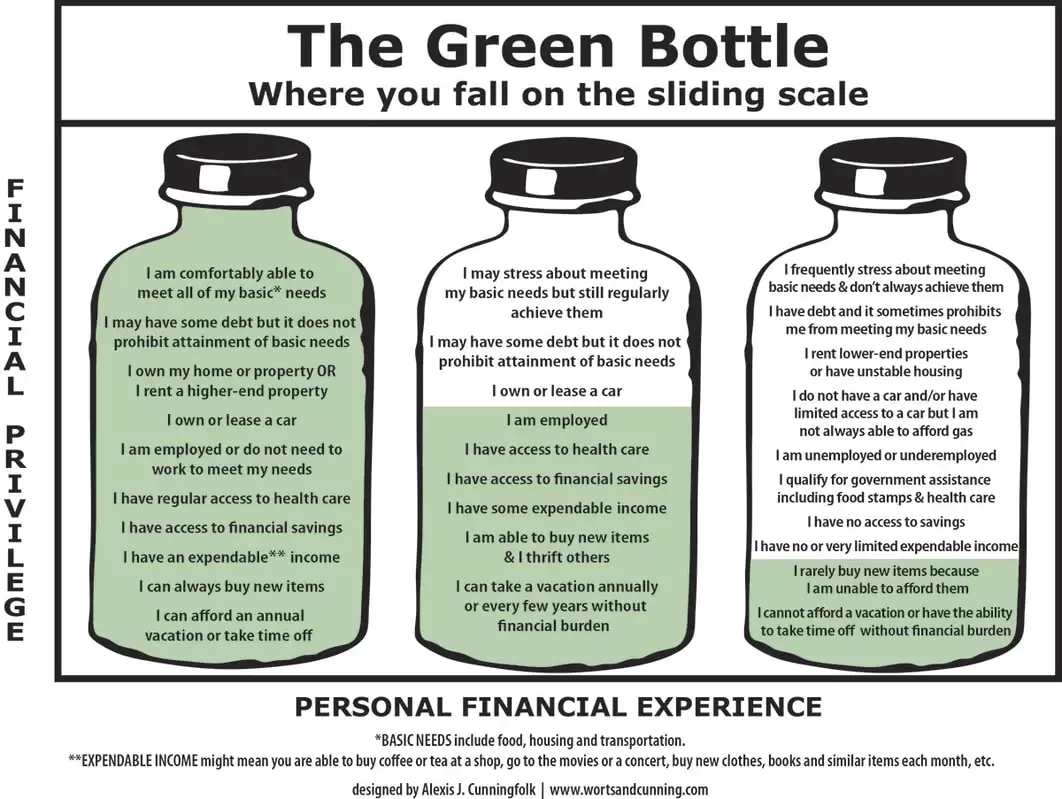|
By Karen Carnabucci, LCSW, TEP As part of our commitment to professional growth and development, Lancaster School of Psychodrama and Experiential Psychotherapies is initiating a new scholarship and sliding scale program that is an important tool for social justice. The scholarship and sliding scale plan is based on the nationally known Green Bottle, which acknowledges peoples' different financial experiences enables participants to adjust payment based on access to resources. Our plan prioritizes scholarships and sliding scale fees for new trainees, persons attending undergraduate or graduate school, Black, Indigenous, and People of Color (BIPOC), are coming from historically black colleges and universities, persons who work in prisons or domestic violence or homeless shelters, veterans, continuing trainees of restricted financial means who demonstrate a strong commitment to their study of alternative alternative methods and action psychotherapies, including psychodrama, sociometry and group psychotherapy. Green Bottle was developed by Alexis J. Cunningfolk, a community healing practitioner and herbalist based in Sacramento, Calif., who was seeking a way to make health-related services truly accessible to a diverse number of people no matter their financial status. The plan looks like this: The top price class ticket (the full bottle) is the actual cost of the class, which includes the educator's planning and presentation time and skills, rental fee, associated fees like insurance, snacks, supplies and other amenities. If you choose a ticket price below the top tier, you are receiving a discount. The middle price (the middle-filled bottle) is for those who are able to meet their basic needs but have little-to-no expendable income. Paying for this class may qualify as a sacrifice but it would not create hardship. The bottom price (the least-filled bottle) is for those who struggle to meet basic needs and paying for this class would still be a significant hardship. A fourth option, the Pay-It-Forward price, is a few dollars above the actual cost of the class, and that extra money is steered to supporting scholarships and future free and low-cost classes. Essentially, it's an opportunity to not only take the class but also support your fellow community members. Admittedly, this plan is a work in progress, although it does seem like growing numbers of people are attracted to its simplicity, asking people to identify their own assets and boundaries rather than become involved in complicated application forms that include submitting pay stubs, income tax forms and similar “proof.” Disadvantages of the plan The plan obviously has advantages. As a social justice tool, it seeks to address the systemic inequalities of class and lack of opportunity in our culture and has been adopted and adapted by alternative healing practitioners, educations, and activist organizations. In fact, although I have offered a sliding scale for years, I first heard about the Green Bottle model during a social justice workshop at a conference organized by the American Society of Group Psychotherapy and Psychodrama. However, there are also disadvantages. As Alexis writes in a follow-up article, “The biggest disadvantage of the sliding scale is that folks will take advantage of it,” and that’s true. Many of us have helped people access services for a lower cost only to notice the person coming in with her new (expensive) pair of shoes or exclaiming about the fun they had during last week’s costly vacation. So… As many practitioners have noted, a sliding scale to work, it relies on the principles of truthfulness, respect for complexity, and accountability. Be mindful that if you pay for training or service at the lowest end of the scale when you can truthfully afford the higher ticket prices, you are limiting access to those people who really need the gift of financial flexibility. Such a plan sometimes brings up anxiety about money, even with people who are financially comfortable – a response that can be rooted in family and ancestral experiences and deprivations. Here, it is helpful to acknowledge additional factors that are in play look at how people can commit themselves to address them as well as noticing how decisions are made about spending. It becomes a real personal growth experience. The Lancaster School of Psychodrama and Experiential Psychotherapies offers continuing education classes for mental health professionals, creative arts therapists, other helping and healing professionals, life and wellness coaches, educators and others interested in experiential and group skills. It is approved by Pennsylvania to offer continuing education credits for social workers, marriage and family therapists and licensed counselors and psychologists, plus -re-credentialing hours for addiction counselors and recovery specialists, Act 48 hours for educators and psychodrama hours. For an application for a reduced rate, click here. About Karen
Karen Carnabucci, LCSW, TEP, is a nationally board-certified practitioner of psychodrama, sociometry and group psychotherapy and the founder and director of the Lancaster School of Psychodrama and Experiential Psychotherapies in Lancaster, Pa. You may subscribe to Karen's e-letter here.
0 Comments
Your comment will be posted after it is approved.
Leave a Reply. |
AuthorKaren Carnabucci, LCSW, TEP, is an author, trainer and psychotherapist who promotes, practices and teaches experiential methods including psychodrama, Family and Systemic Constellations, sand tray, mindfulness and Tarot imagery. Archives
December 2023
Categories
All
|

 RSS Feed
RSS Feed